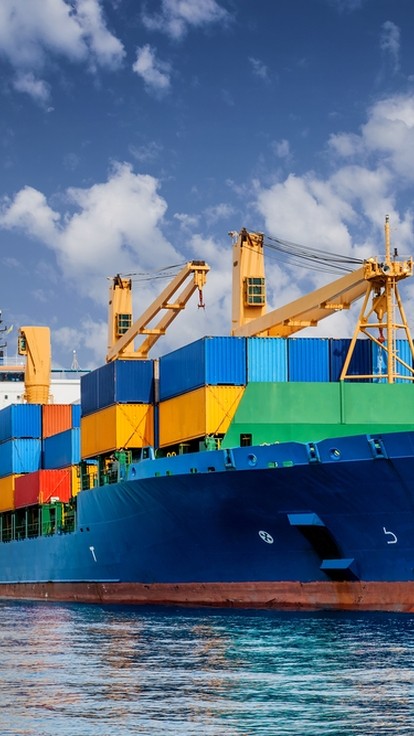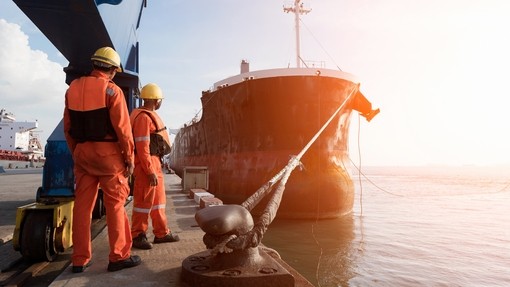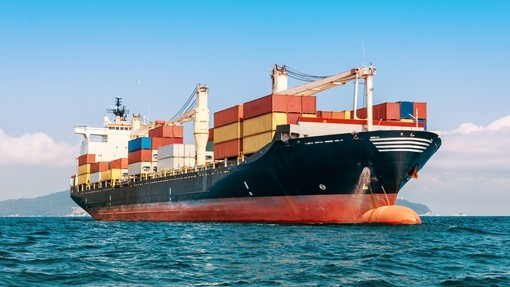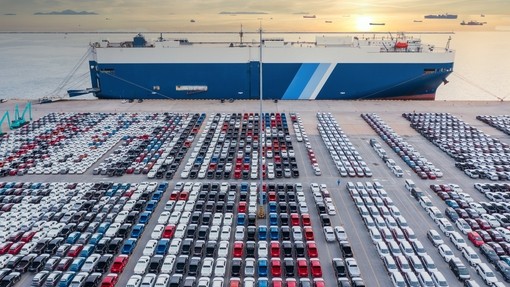Kyokuyo Co Ltd -v- A.P Moller – Maersk A/S [2017] EWHC 654 (Comm)

Details
In this case, the High Court considered, for the first time, package limitation for containerised cargoes under the Hague-Visby Rules. The court also considered the applicability of the Hague-Visby Rules where waybills were issued instead of bills of lading.
Factual background
This dispute arose out of the damage to three container loads of frozen tuna, shipped at Cartagena (Spain) for carriage by Maersk Line (the defendant) to Japan. The containers consisted of bluefin tuna loins and bags of frozen bluefin tuna parts, stuffed respectively into the containers as individual items of cargo, without any wrapping, packaging, or consolidation, and as individual bags.
The containers were received by the defendant pursuant to a contract of carriage incorporating the Maersk terms, and containing an implied term entitling the shippers to demand that a bill of lading be issued by Maersk Line. The defendant provided to the claimant a draft, straight consigned bill of lading.
On 17 and 18 January 2013, Kyokuyo Co Ltd (the claimant) requested that the destination of two of the containers, container B and the replacement container (originally container C), be altered, requiring onward carriage by road. The defendant agreed to this request. No bill of lading had been issued so far for any of the containers, and, in order to avoid further delay in delivery, the claimant and defendant agreed to issue sea waybills instead.
Upon receipt of the containers, the claimant alleged that the tuna in all three containers was damaged through raised temperatures during carriage and/or rough handling during re-stuffing into the replacement container, and held that the defendant was responsible.
The preliminary issues
By an order made by consent in October 2016, Knowles J. considered four preliminary issues:
- Is liability limited pursuant to Article IV r 5 of the Hague Rules or Article IV r 5 of the Hague-Visby Rules?
- Should limitation be calculated by reference to the cargo in all three containers collectively, or by separate treatment of the cargo in each container individually?
- If liability is limited pursuant to Article IV r 5 of the Hague Rules, are the relevant packages or units the containers or the individual pieces of tuna?
- If liability is limited pursuant to Article IV r 5 of the Hague-Visby Rules, are the containers deemed to be the relevant package or unit, for the purposes of Article IV r 5(a), or are the individual pieces of tuna the relevant packages or units? In particular, were all or any of the individual pieces of tuna, packages or units enumerated in the relevant document as packed in each container for the purposes of Article IV r 5(c)?
Legal Issues
Issue one
The judge held that the Hague-Visby Rules did apply compulsorily, notwithstanding that waybills had been issued, and, therefore, liability in this case was limited by Article IV rule 5 of the Hague-Visby Rules.
By s1 (2) of COGSA 1971 the Hague-Visby Rules have the force of law, and are applicable compulsorily where they are applicable on their own terms.
The Hague-Visby Rules apply to ‘every contract of carriage of goods by water…’. Article 1(b) of the Hague-Visby Rules defines a contract of carriage, as ‘contracts of carriage covered by a bill of lading or any similar document of title’. (The court did not need to consider the question of ‘similar document of title’).
The judge discussed a number of cases where no bill of lading was issued and concluded that it need only be necessary that the parties contemplate that a bill of lading be issued, in order to satisfy Article 1(b). In particular the judge referenced the case of Pyrene Co Ltd -v- Scindia Navigation Co Ltd [1954] 2 QB 402, which said that Article 1(b) was satisfied ‘whenever a contract of carriage is concluded, and it is contemplated that a bill of lading will, in due course be issued…’. In the subject case, the parties quite obviously contemplated that in due course the bill of lading, produced in draft form, would be issued.
However, the Hague-Visby Rules only govern the carriage of goods by sea, meaning that for container B and the replacement container it was necessary to consider the application of the Maersk terms in respect of any damage arising out of the final (non-sea) stage of transit.
Issue two
The judge felt that the question being asked under this issue was not correct, and instead decided to consider whether the ‘package or unit’ limit was truly a limit ‘per package or unit.’
In considering this issue, the judge concluded that the meaning of the ‘package or unit’ limit under Article IV r 5 of the Hague-Visby Rules is that there is a separate limit for each package or unit. As a consequence, the judge held that the defendant was liable for up to 666.67 units of account for each frozen tuna loin, and 666.67 for each bag of tuna parts.
The judge went on to consider the weight-based limit and said that this was only relevant to the bagged tuna as each frozen loin weighed much less than the 333.34 kg needed for the weight-based limit to be greater.
Issue three
Due to the conclusion made on issue one, this issue no longer needed to be considered. The judge, however, still thought it useful to do so, stating that he did not believe there to be any difference in the meaning of ‘package or unit ‘as between the two sets of Rules.
The judge said that the key question here was whether it was a necessary characteristic of a Hague Rules ‘package or unit’, in the case of containerised cargo, that it could have been shipped ‘as is’ if not containerised.
In considering this question, the judge concluded that each of the frozen bags of tuna parts were to be classed as a separate ‘package,’ and that the individual frozen loins were ‘units.’ In coming to this conclusion, the judge said that the focus was to be on the cargo as in fact transported, and that there was no special rule calling for a focus upon how the cargo could have been shipped if not containerised. In relation to the term ‘package’ he said that it is irrelevant if what has been packaged would have been suitable for transportation without that packaging. In relation to the term ‘unit’ he said that if cargo is made up of identifiable separate items of transportable cargo, then those items are units.
The judge re-instated the fact that it was common ground, from the case of The River Gurara [1998] QB 610, [1998] 1 Lloyd’s Rep 225, that where goods are shipped, already stuffed into a container, the container is not necessarily the ‘package or unit.’
Issue four
Article IV r 5(c) of the Hague-Visby Rules states that the number of packages or units enumerated in the bill of lading, as packed, shall be deemed the number of packages or units, as far as these packages or units are concerned.
The defendant argued that, relying on the case of El Greco (Australia) Pty Ltd -v- Mediterranean Shipping Co S.A [2004] 2 Lloyd’s Rep 537, this rule meant that the enumeration in the bill of lading must specify that the enumerated items were so packed as to be ‘packages or units’.
In coming to his conclusion, the judge said that nothing more is required than a statement, which is consistent with the truth, identifying, and putting a number on, the items that compromise the cargo. Therefore, in this case, as the individual frozen loins were enumerated in the waybills as being the cargo, by operation of Article IV rule 5(c), they were the units for the purposes of Article IV rule 5(a).
Case comment
Although the facts of this particular case were specific to circumstances where the parties clearly contemplated that a bill of lading would be issued, and therefore can be distinguished on that basis, this case, along with The Rafaela S [2005] 2 AC 423, does represent a trend towards the compulsory application of the Hague-Visby Rules where the courts can find a means to do so.
This article originally appeared in the April 2017 edition of shipping case digest. Other articles include:
Nautical Challenge Ltd -v- Evergreen Marine (UK) Ltd [2017] EWHC 453 (Admlty)
OMV Petrom SA -v- Glencore International AG [2017] EWCA Civ 195 (27 March 2017)






